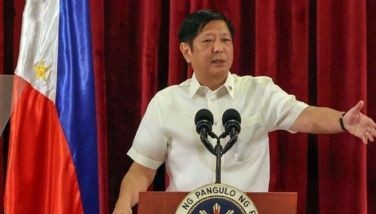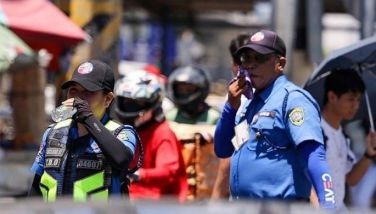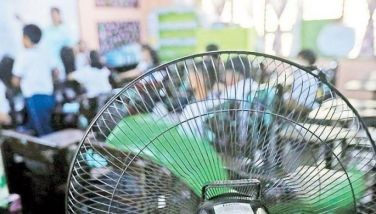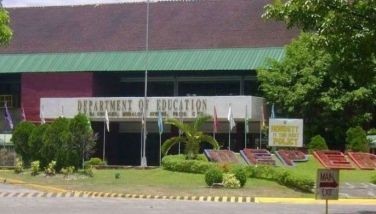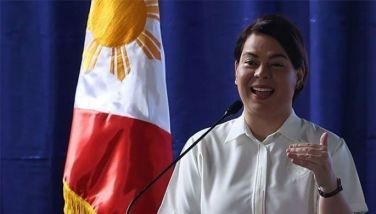Cases rise against Aquino's rice sufficiency dream
MANILA, Philippines — President Benigno Aquino III declared 2013 the National Year of Rice to intensify the campaign to achieve rice self-sufficiency this year, despite warnings by international organizations and agriculture economists that the goal is unattainable and even imprudent.
The president even promised in his year-end speech on the last day of 2012 that Filipinos can expect enough locally produced rice to feed the population soon.
"Hindi na lamang rice self-sufficiency, kundi ang pag-eexport ng matataas na klase ng bigas ang habol natin pagdating ng 2013," he said.
Philippine Institute for Development Studies (PIDS) senior fellow Roehlano Briones, however, assessed the country's capability to halt rice imports and concluded that the administration's expensive Food Staples Sufficiency Program (FSSP) is "too ambitious" to be realized.
"The rice self-sufficiency target is unlikely to be achieved, whether in 2013 or even over the course of the decade to 2020," Briones said in PIDS study published late in 2012.
The Philippines, one of the world's largest importers of rice, is set to end such imports altogether by producing 13.03 million tons of milled rice in 2013—a goal, which for Briones, is simply "unrealistic."
Veteran business journalist Rene Pastor of New Jersey-based Philippine Commodities Digest shared Briones' insight, even suggesting that the move is more political than it seems.
"The (rice sufficiency) target is a nice sound-bite in the Philippines, especially with mid-term elections coming up in May of next year," Pastor said in a December 2012 article.
Causing poverty
Economists from the University of Asia and the Pacific (UA&P) Center for Food and Agribusiness, meanwhile, partly blamed government's popular campaign to become an autonomous rice producer for "persistent" poverty in rural areas.
Calling the high allocation on rice development "misguided," the study by the think tank found that the poorest of the poor belongs to the fishing and coconut farming sectors that are barely reached by government support despite their productivity.
"The pursuit of the common good is hampered by the over-emphasis on the rice sector, which has led to lower incomes of non-rice farmers—(this is) one of the structural causes of food insecurity of the rural poor," the research concludes.
However, agriculture economist Rolando Dy, the lead researcher of the UA&P study, refused to comment on whether the rice drive is advantageous to the country.
"The issue is a very sensitive one for Pnoy," he said in an e-mail response.
Pricey fixation
The World Bank, moreover, released a study on the country's agribusiness in 2011 saying that the Aquino administration's commitment to self-sufficiency makes the staple food more expensive for consumers.
"The fixation on rice self-sufficiency results in relatively higher price of rice in the domestic market compared to the world market price," says the World Bank September 2011 report jointly written by National Economic Development Authority chief Artemio Balisacan and five other researchers.
Department of Agriculture's banner policy to mainly fund rice programs also makes farm lands costlier, the study notes.
Saying that local rice production is costlier, Briones similarly found that Filipinos will eventually find rice more expensive once government protects the country's own outputs by barring cheaper imports.
"Sa madaling sabi: makakamit ang sariling kasapatan sa bigas, kapalit ng lalong pagmahal nito sa pamilihan," he said.
International criticism
The Asian Development Bank (ADB) also recommended that the Philippines should lessen its investments in programs to boost rice production and to even export the grain by 2014.
ADB economist Bui Minh Giap said in a forum that the Aquino administration's bid to meet the demand in rice, a staple food, by 2013 is not only unviable but also unwise.
"The target will not be accomplished," Giap said, supporting claims that costs of rice production costs in the Philippines are much higher than large rice producing neighbors Vietnam, Thailand and Cambodia.
Giap cited the country's lack of agricultural infrastructure and the slow progress in land reform programs as bottlenecks for the goal.
The Department of Agriculture, however, forged a partnership with the International Rice Research Institute (IRRI) in December to attain and sustain the desired food security.
A top scientist from the same organization, however, earlier criticized government's 2013 projection.
IRRI Deputy Director General Achim Dobermann told reporters the year before that sustainable production would not be likely due to Filipinos' rice-based eating habits and lack of infrastructure.
"Self-sufficiency by 2013 is probably somewhat ambitious," said Dobermann.
Asked to react on such findings, Agriculture Secretary Proceso Alcala told reporters that the government will still push for the self-sufficiency target amid criticisms.
"I don't care what they think. We are Filipinos, we know our country (better). And when I say that we will attain self-sufficiency (in 2013), we will do our best to make that happen," Alcala said.
- Latest
- Trending
















